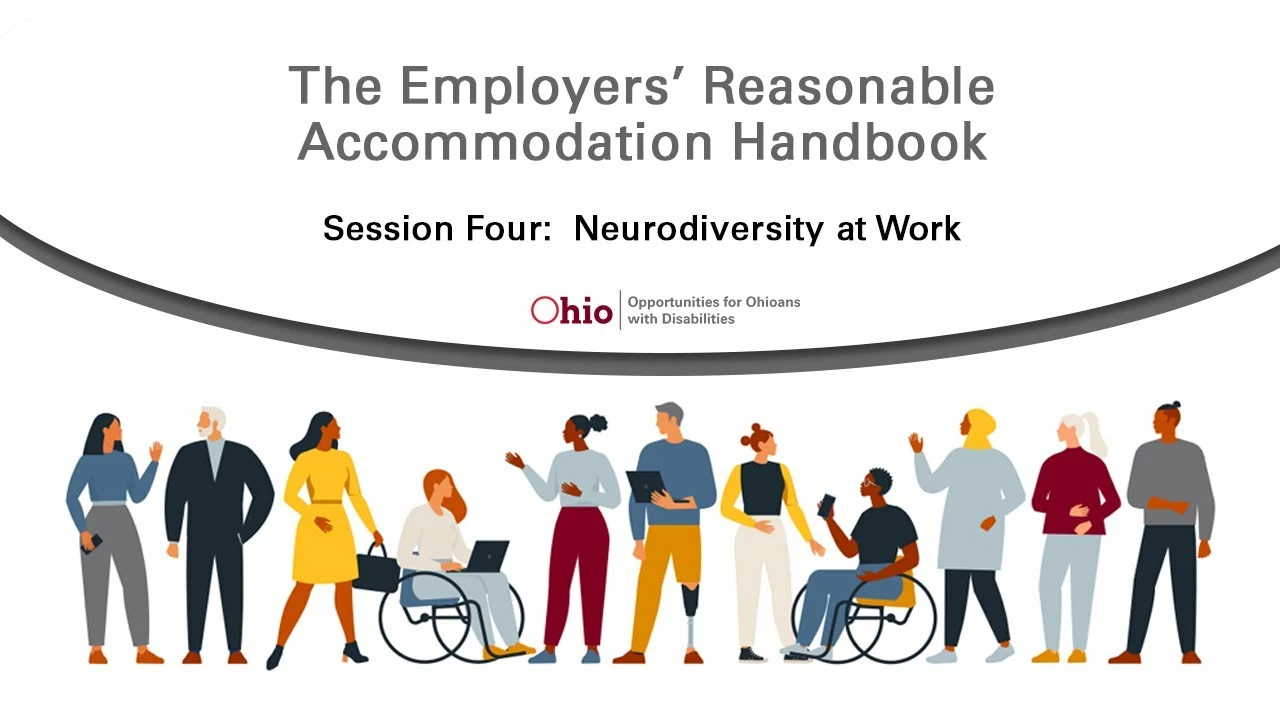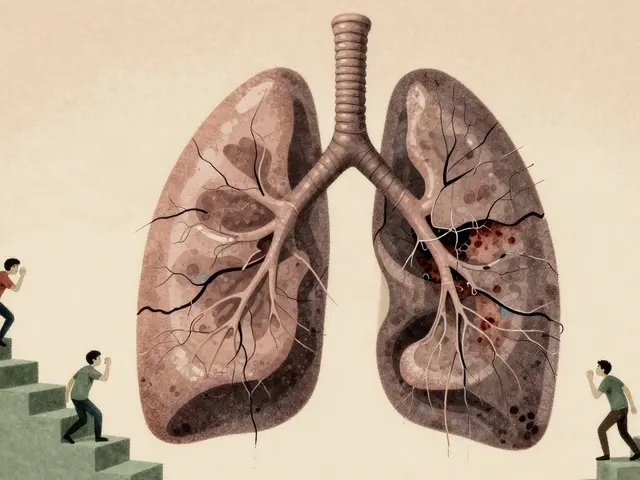Understanding Spastic Muscle States
In this section, we will delve into the basics of spastic muscle states, their causes, and how they affect an individual's daily life. Spasticity is a condition in which certain muscles continuously contract, causing stiffness or tightness of the muscles. This can interfere with normal muscle movement, speech, and overall mobility. Common causes of spasticity include cerebral palsy, multiple sclerosis, brain or spinal cord injury, and stroke. By understanding the nature of spastic muscle states, we can better comprehend the challenges faced by those living with this condition and explore ways to improve their career and employment opportunities.
Physical Challenges and Workplace Accommodations
Individuals with spastic muscle states often face physical challenges in the workplace. These challenges may include reduced mobility, muscle stiffness, and difficulty with fine motor skills. Employers can make reasonable accommodations to help employees with spasticity perform their job duties more effectively. Some possible accommodations include providing ergonomic equipment, allowing frequent breaks for stretching and movement, and modifying workstations to improve accessibility. By understanding the specific needs of employees with spastic muscle states, employers can create a more inclusive and supportive work environment.
Disclosure and Communication in the Workplace
Deciding whether to disclose a spastic muscle state to an employer or coworkers can be a difficult decision for many individuals. Some may worry about being treated differently or facing discrimination as a result of their condition. However, open communication can be crucial in ensuring appropriate accommodations and support are in place. Employees should consider discussing their condition with their employer and coworkers, emphasizing their abilities rather than their limitations. This can help foster understanding and collaboration in the workplace, ultimately leading to better career opportunities.
Developing Skills and Building a Strong Resume
Individuals with spastic muscle states can increase their employability by focusing on their strengths and developing valuable skills. This may include pursuing relevant education or training, gaining experience through internships or volunteer work, and building a strong professional network. A well-rounded resume showcasing one's abilities and accomplishments can help counter potential biases and demonstrate that a person with spasticity is a valuable asset to any team or organization.
Exploring Flexible and Remote Work Opportunities
Flexible and remote work arrangements can be a great option for individuals with spastic muscle states, as they often allow for greater control over one's environment and work schedule. Remote work can eliminate the need for extensive workplace accommodations and offer employees the ability to create a comfortable and accessible workspace at home. Additionally, flexible work hours can help accommodate medical appointments and the need for rest breaks. By considering these alternative work arrangements, individuals with spasticity can expand their career opportunities and find positions that best suit their unique needs.
Advocacy and Legal Protections
It is important for individuals with spastic muscle states to be aware of their rights and the legal protections in place to prevent discrimination in the workplace. In many countries, laws such as the Americans with Disabilities Act (ADA) prohibit discrimination against individuals with disabilities, including those with spasticity, and require employers to provide reasonable accommodations. By understanding their rights, individuals with spastic muscle states can advocate for themselves and ensure they have equal access to career and employment opportunities.
Support Networks and Resources
Connecting with others who have similar experiences and challenges can be an invaluable resource for individuals with spastic muscle states. Support groups, online communities, and advocacy organizations can provide guidance, advice, and encouragement throughout one's career journey. Additionally, these networks can help individuals stay informed about relevant resources, job opportunities, and advancements in treatment and accessibility. By tapping into these support systems, individuals with spastic muscle states can build resilience and confidence as they navigate the world of work.








19 comments
Michael Lynch
I've seen people with spasticity thrive in remote tech roles. It's not about the body, it's about the brain. Give 'em the tools and they'll outwork anyone.
John Greenfield
This is all feel-good nonsense. Spasticity is a liability. Employers don't hire cripples because they're 'valuable assets.' They hire them because they're forced to by lawyers.
Dr. Alistair D.B. Cook
I think you're all missing the point... like... seriously... spasticity isn't a career barrier... it's a... *sigh*... neurological... thing... that... uh... needs... more... funding... maybe...
Ashley Tucker
Oh, so now we're pretending that people with cerebral palsy are just 'differently abled' and not 'too broken to be useful'? How cute. The ADA is a joke. Companies pay the fines and move on.
jackie cote
Focus on skills. Build your portfolio. Apply anyway. You don't need permission to be great.
Adam Walter
Let me tell you about my cousin who's a senior data analyst with quadriplegic spasticity. Uses voice-to-text, adaptive keyboard, and runs meetings from his smart home. Bosses don't care if you're in a wheelchair if your KPIs are through the roof. The real barrier? Attitude. Yours or theirs.
Gurupriya Dutta
I work in HR in Delhi. We've hired three people with spasticity in the last year. All excelled. One improved our client response time by 40%. The accommodations? A better chair, flexible hours, and respect. That's it.
Meredith Poley
Funny how the article never mentions that most employers just don't want to deal with it. They'll say 'we're inclusive' then quietly ghost applicants with visible disabilities. The ADA is toothless without enforcement.
Ikenga Uzoamaka
I am Nigerian, I have seen this before... in my village, people with spasticity are left to die... or beg... this is not a 'career opportunity' issue... it is a human rights crisis... you people talk about remote work like it's a luxury... in my country, it's a miracle if they have clean water...
Camille Mavibas
Just because you can't grip a pen doesn't mean you can't code. Or write. Or lead. 🌟
Hollis Hamon
I've been in a wheelchair since birth. I run a 7-figure SaaS company. No one cares about your spasticity if you deliver. Stop asking for permission. Build. Ship. Dominate.
Mathias Matengu Mabuta
The notion that 'reasonable accommodations' are feasible in small businesses is a myth. The ADA is a bureaucratic nightmare that punishes entrepreneurs. We need to stop pretending this is about inclusion. It's about liability.
Allen Jones
Did you know the government uses spasticity data to track who's 'too disabled to work'? They flag your name. Your credit score drops. Your job applications get auto-rejected. It's not a coincidence. It's a system. They don't want you employed. They want you on disability. And they profit from it.
Bhanu pratap
You guys are missing the magic: spasticity doesn't mean you're broken. It means you're wired differently. My son, 14, has it. He codes better than half his college classmates. He sees patterns no one else does. That's not a limitation. That's a superpower. 🙌
caroline howard
You think remote work is the answer? Try applying for a job when your voice assistant mishears your name 3 times in a row and the HR bot auto-rejects you. It's not flexibility-it's algorithmic bias.
jackie cote
Then build your own damn company. Or freelance. Or start a YouTube channel. The system won't change because you wait for it to be fair. You change it by being undeniable.
Shubham Singh
The truth is... we are not asking for sympathy... we are asking for the right to be seen... as more than our spasticity... you don't have to fix us... just stop looking away...
Lee Lee
Spasticity is a tool of the New World Order. The CDC and WHO are using it to identify 'non-productive' citizens for population control. The ADA? A distraction. The real goal? Reduce the burden on the system. They don't want you working. They want you quiet.
ANDREA SCIACCA
I used to cry every time I got rejected. Now I send my resume with a video of me typing with my feet. 80% of companies don't even watch it. But the 20% who do? They hire me. Because I didn't ask for pity. I showed them my value.